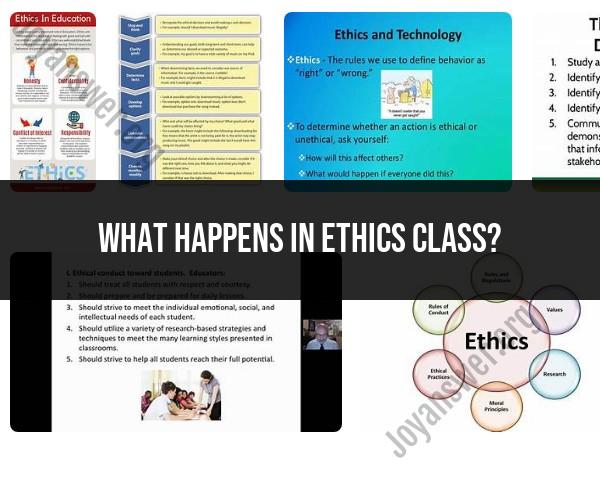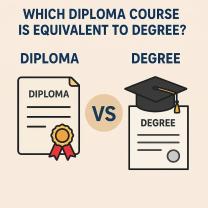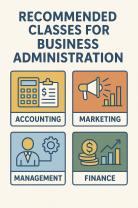What happens in ethics class?
In an ethics class, students explore fundamental principles, theories, and concepts related to ethical reasoning and decision-making. The content of an ethics class can vary depending on the educational level (e.g., high school, college, or professional training) and the specific focus of the course. Here are some common components and topics covered in ethics classes:
Introduction to Ethics:
- An ethics class typically begins with an introduction to the field of ethics, exploring its history, key figures, and major philosophical traditions. This may include discussions on ethical relativism, absolutism, and cultural differences in ethical beliefs.
Ethical Theories:
- Students learn about various ethical theories that provide frameworks for analyzing moral issues. Common ethical theories include utilitarianism, deontology, virtue ethics, and ethical egoism. The class may delve into the principles and perspectives of each theory.
Moral Reasoning:
- The course often covers the process of moral reasoning, helping students understand how to analyze ethical dilemmas, make informed decisions, and consider the consequences of their actions. Case studies and real-life scenarios may be used to apply ethical theories to practical situations.
Applied Ethics:
- Applied ethics explores ethical issues within specific fields or contexts. Topics may include business ethics, medical ethics, environmental ethics, bioethics, technology ethics, and more. The goal is to examine ethical challenges that arise in various professions and industries.
Ethical Decision-Making Models:
- Students may be introduced to ethical decision-making models that provide systematic approaches to resolving moral dilemmas. These models often involve steps such as identifying the problem, gathering information, considering alternatives, and assessing the consequences.
Values and Virtues:
- Discussions may focus on personal and cultural values, as well as the development of virtues that contribute to ethical character. Students explore the concept of integrity, honesty, empathy, and other virtues that are essential for ethical behavior.
Ethics and Technology:
- In the modern context, ethics classes may address ethical considerations related to technology, artificial intelligence, data privacy, and cybersecurity. The impact of technology on society and individual privacy is often explored.
Professional Ethics:
- Students pursuing specific professions may delve into the ethical codes and guidelines relevant to their fields. For example, business students might study business ethics, while medical students may focus on medical ethics.
Ethical Issues in Society:
- Classes may cover broader societal issues, such as social justice, inequality, human rights, and the ethical responsibilities of individuals and institutions in addressing these challenges.
Guest Speakers and Case Studies:
- Ethics classes may feature guest speakers, experts, or practitioners who provide real-world perspectives on ethical challenges. Case studies are commonly used to engage students in analyzing and discussing specific ethical dilemmas.
Ethical Debates and Discussions:
- Interactive discussions and debates are often integral to an ethics class. Students are encouraged to express their views, challenge ideas, and engage in thoughtful dialogue on ethical issues.
Ethics in the Professions:
- For students preparing for specific professions, the class may explore the ethical responsibilities and considerations unique to those fields. This could include legal ethics, engineering ethics, journalism ethics, etc.
The structure of an ethics class may involve lectures, group discussions, reading assignments, written reflections, and assessments. The goal is to equip students with the knowledge and skills to think critically about ethical issues, make informed decisions, and apply ethical principles in their personal and professional lives.
What topics or discussions are typically covered in an ethics class?
The specific topics and discussions covered in an ethics class can vary depending on the level, focus, and instructor of the course. However, some common themes and areas of exploration consistently feature across many ethics curriculums:
Foundational Concepts:
- Defining ethics: What is ethics? Why is it important? How does it differ from morality and law?
- Core ethical principles: Exploring key principles like autonomy, beneficence, non-maleficence, justice, and fairness.
- Ethical frameworks and decision-making models: Examining different approaches to analyzing ethical dilemmas, such as utilitarianism, deontology, virtue ethics, and care ethics.
Application to Specific Areas:
- Professional ethics: Examining ethical challenges faced in specific professions like business, medicine, engineering, law, journalism, and technology.
- Bioethics: Exploring ethical considerations in healthcare, biotechnology, and life sciences.
- Environmental ethics: Discussing our relationship with the environment and responsibilities towards nature.
- Global ethics: Addressing ethical issues in a globalized world, such as human rights, international justice, and cultural relativism.
Case Studies and Scenarios:
- Analyzing real-world case studies: Discussing historical or contemporary examples of ethical dilemmas and how they were approached.
- Hypothetical scenarios: Engaging in thought experiments and role-playing exercises to explore potential ethical challenges and practice decision-making.
Critical Thinking and Discussion Skills:
- Developing critical thinking skills: Recognizing biases, assumptions, and logical fallacies in ethical arguments.
- Reflective practices: Examining personal values and biases, and their influence on ethical judgments.
- Effective communication and debate: Participating in respectful and constructive discussions of complex ethical issues.
Additional Considerations:
- Contemporary issues: Many ethics classes incorporate current events and emerging technologies to explore the most pressing ethical challenges of our time.
- Interdisciplinary approach: Ethics often draws from multiple disciplines like philosophy, sociology, psychology, and history, offering a well-rounded perspective on ethical challenges.
- Personal development: Learning about ethics can not only guide our actions but also contribute to personal growth and a deeper understanding of ourselves and the world around us.
Ultimately, an ethics class aims to equip students with the knowledge, skills, and critical thinking tools to navigate complex ethical dilemmas and make informed decisions in various aspects of life. Whether focusing on specific professional situations, personal choices, or broader societal issues, ethics education seeks to foster responsible and ethical individuals who contribute positively to the world around them.
If you'd like to explore specific topics or areas within ethics, feel free to ask for further details! I'm always happy to delve deeper into the fascinating world of ethical considerations.












